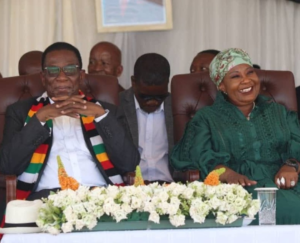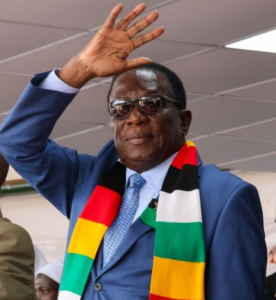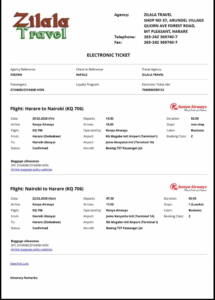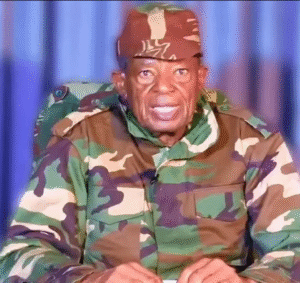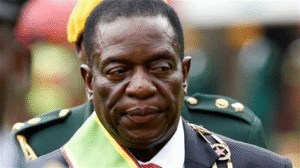ZIMBABWE’S PRESIDENT MNANGAGWA SECURES POWER, LEAVING CHIWENGA IN LIMBO
In a dramatic turn of events, Zimbabwean President Emmerson Mnangagwa has tightened his grip on power, further consolidating his authority by ousting his once-powerful co-Vice-President, Constantino Chiwenga, from his ministerial position. This bold move has sent shockwaves through Zimbabwean politics, raising questions about Chiwenga’s future and the direction of the nation.
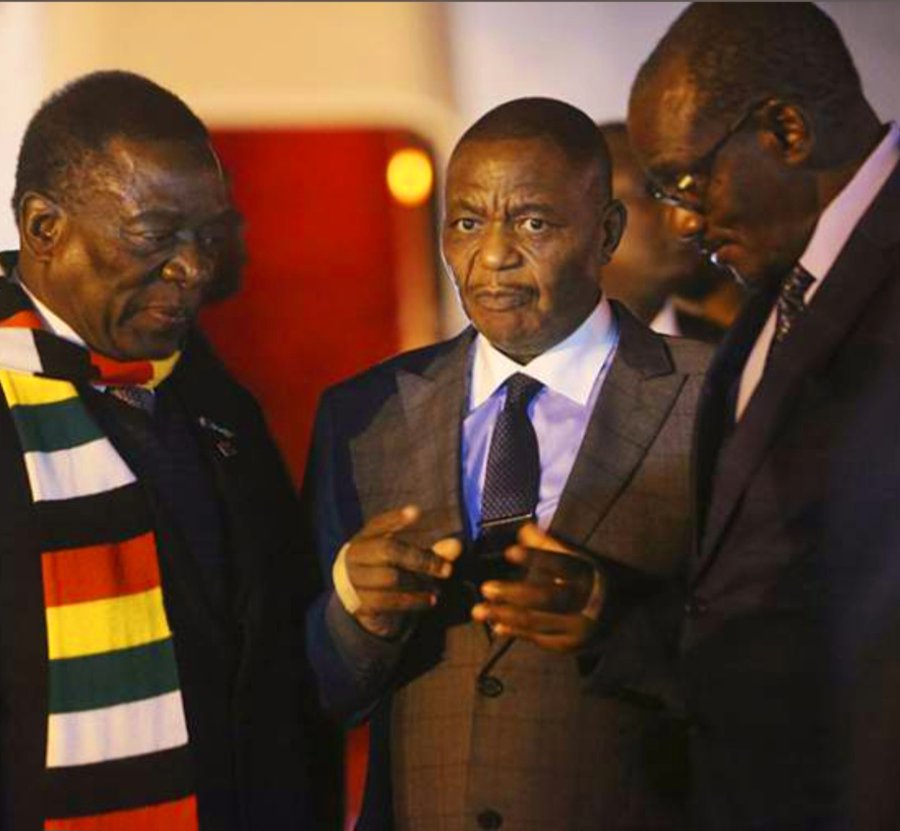
Chiwenga, the former commander of the Zimbabwe Defence Forces, played a pivotal role in catapulting Mnangagwa to the presidency through a military-backed coup in 2017. At that time, it seemed like a gentleman’s agreement: Mnangagwa would serve one term as the civilian face of the government, and then Chiwenga would take over in 2023. However, as the saying goes, “there’s no honour among thieves,” and Mnangagwa had different plans.
Zimbabwean President Emmerson Mnangagwa has now fully consolidated power after unceremoniously removing his once-powerful co-Vice-President Constantino Chiwenga in a recent new cabinet appointment. The former Zimbabwe Defence Forces commander was booted out as Health minister. He was initially removed as Defence and War Veterans minister, but now he has been completely kicked out of ministerial portfolios he needed to consolidate power and fight for control of the levers of state power. Chiwenga practically installed Mnangagwa in power through a coup in 2017, naively believing he would rule one term and then give him a chance to take over. That proved politically naive and fatal as Mnangagwa ruthlessly consolidated power after coming in and weathering the storm of military control following the November 2017 coup which ousted the late former president Robert Mugabe. Now that Mnangagwa is fully in charge, having purged all those who were key and influential in the coup, what happens next? The purges were ruthless. Some were redeployed, removed and others died. Chiwenga barely survived an undisclosed illness, suspected to be poisoning. There was also the June 2018 Bulawayo White City Stadium grenade attack that signalled inherent danger in tje coup deal. Mnangagwa, who views Chiwenga as an overly ambitious junior, also benefitted from the role of political contingency: The unexpected, accidental, and the inforeseen. That Chiwenga wants power is not in doubt. His political allies and even former wife Marry Mubaiwa have confirmed he wants to be President. He hoped to have been in power during this past election. That was the basis of his coup deal with Mnangagwa. It was a gentleman’s agreement: Let’s have a coup, you come in as the civilian face and serve one term, and I will take over in 2023. Now that Mnangagwa has clearly betrayed his erstwhile political ally, the question is: What will Chiwenga do? Does Chiwenga have the guts and capacity to do anything? His liberation struggle record and coup experience suggests he has the capacity, yet some of reviews of his credentials and performance suggests he doesn’t have, particularly without some of his removed and dead colleagues. In a damning 2010 appraisal of Chiwenga contained in leaked Wikileaks cables, Zimbabwe’s Brigadier-General Herbert Chingono and Major-General Fidelis Satuku told then United States ambassador to Harare Charles Ray that Chiwenga was not fit for the job. “General Constantine (now Constantino) Chiwenga is a political general who works hard, but who has very little practical experience or expertise,” the diplomatic cables said. “Given a choice between a military and political issue, Chiwenga will always choose the political because he doesn’t know enough about the military to be comfortable discussing it.” The cables said Chiwenga is a “political general” who works hard, but who has “very little practical military experience or expertise”. A political commissar in Zanu during the liberation struggle, he has only attended one mid-level training course, which he did not complete. However, Chiwenga later controversially studied for a Masters’ degree at the University of Zimbabwe and PhD from the University of KwaZulu-Natal amid claims he hired people to help him in his studies. The cables continue: “If given a choice between a military and a political issue, he routinely defaults to the political. His goal is to be in politics when his tenure ends as defence chief, and he will be very disappointed if he fails to achieve that goal.” As the US cables predicted, Chiwenga has ended up in politics, but his limitations have been exposed as Mnangagwa runs rings around him. Again, what is going to be the endgame of this coup drama?
The recent cabinet reshuffle saw Chiwenga removed from his post as the Health minister, following his earlier removal as the Defence and War Veterans minister. This strategic move effectively stripped Chiwenga of the ministerial portfolios he needed to consolidate power and control the levers of state authority. Mnangagwa had ruthlessly purged those who were instrumental in the 2017 coup, and Chiwenga was no exception.
Chiwenga’s desire for power is undeniable, with political allies and even his former wife, Marry Mubaiwa, confirming his presidential ambitions. He had hoped to ascend to power in the most recent election, but Mnangagwa’s betrayal shattered those dreams. Now, Zimbabweans are left wondering about Chiwenga’s next move.
Chiwenga’s history suggests that he possesses the capability to act decisively. His experience in both the liberation struggle and the 2017 coup indicates his determination and resilience. However, some critics question his ability to navigate the complex world of politics without the support of his former allies and colleagues who were either removed or have passed away.
A leaked Wikileaks cable from 2010 offers a damning assessment of Chiwenga’s qualifications for leadership. Brigadier-General Herbert Chingono and Major-General Fidelis Satuku, in a conversation with the US ambassador to Harare at the time, Charles Ray, described Chiwenga as a “political general” with limited practical military expertise. They noted that he consistently prioritized political matters over military ones, revealing his lack of comfort with military discussions.
While Chiwenga did pursue higher education, obtaining a Master’s degree from the University of Zimbabwe and a PhD from the University of KwaZulu-Natal, allegations surfaced that he had enlisted help to complete his studies. This raises questions about his intellectual independence and capability.
As the leaked cables predicted, Chiwenga transitioned into politics, but his limitations have become glaringly evident as Mnangagwa continues to outmaneuver him. With Mnangagwa firmly in control of the country, Chiwenga’s political aspirations seem increasingly uncertain.
The endgame of this ongoing political drama remains uncertain. Will Chiwenga regroup and make another bid for power, or will he fade into the background as Mnangagwa consolidates his authority? Only time will tell. One thing is certain, though: the power struggle in Zimbabwe is far from over, and the nation watches with bated breath to see how it unfolds.
